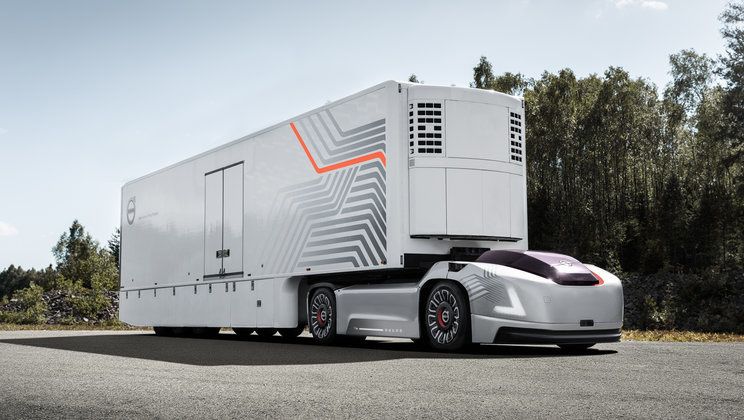Volvo Vera is what autonomous trucks of the future could look like
If the trucking industry is meant to go driverless, then it makes sense for cabs to disappear. That is the theory behind a new concept vehicle revealed by Volvo Trucks.
The vehicle, called Vera, is still under development, according to Volvo. The premise, however, is obvious — a self-driving drive unit without the unnecessary (and heavy) addition of a cab where the driver sits and sleeps.
Read More:
- Uber shutters autonomous truck division after just two years
- These are the companies making self-driving trucks a reality
- Tesla semi truck revealed
Although the end goal will be to have these vehicles on public roads, Volvo is first eyeing ports and logistics centers, where they can drive without interacting with human drivers on complex open roads.
Despite Uber's recent withdrawal from the sector, the trucking industry is seen as ripe for autonomous development. Trucks generally follow simpler routes than cars by avoiding city centers and spending the majority of their time on highways, transporting goods between out-of-town distribution centers.
Volvo said every Vera truck is connected to a control center, which continuously monitors a vehicle's position, battery charge level, trailer contents, service requirements, and other parameters. This control center also adjusts the vehicle's speed, resulting in lower waiting times and a more efficient system.
Volvo said Vera is designed for regular and repetitive tasks carried out over short distances where large volumes of goods are delivered with high precision. Potential locations for such a vehicle include ports, factories, and "mega-logistics centers."
The driverless vehicle attaches to industry-standard containers and trailers.
"The full potential of the transport industry is yet to be seen," said Mikael Karlsson, vice president of autonomous solutions at Volvo Trucks. "The industry needs to find new ways to meet the increased demand on transport efficiently and sustainably. Therefore, new solutions must be developed to complement what's available today."
Being automated, the truck can offer "round-the-clock operations," Volvo said, adding that electric drivetrains mean reduced noise, fuel consumption, and exhaust emissions.
A key issue raised by the development of autonomous trucks is the impact this will have on the jobs of today's truck drivers. On this matter, Karlsson said: "Obviously, this will affect drivers in these applications, but in the big picture, we foresee an increased need for skilled drivers. I strongly believe that technology drives prosperity and takes society forward. In many factories today, some parts of the production are highly automated while some still need to be operated by people. I believe that the transport industry will evolve the same way."
